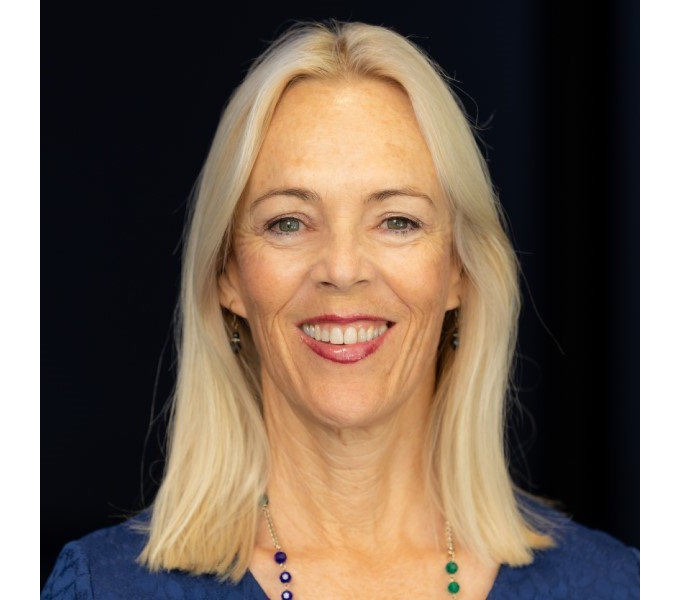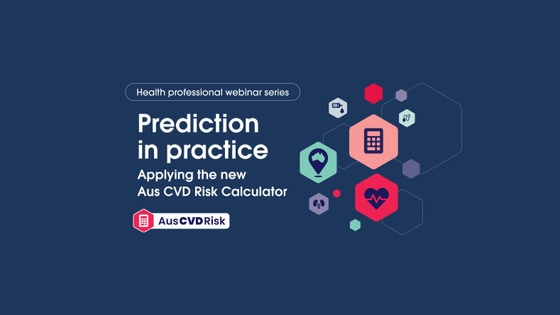
Webinar: Heart-healthy eating simplified: a recipe for effective behaviour change
Poor diet is a leading risk factor of coronary heart disease, contributing to 50% of the total burden of heart disease. Furthermore, disease burden attributed to dietary risks is not distributed equally across Australia. The disease burden is twice as high in the lowest most disadvantaged group compared to the highest least advantaged group.1
The most recent figures indicate that 95% of adults and 94% of children are not meeting the recommended intake of fruit and vegetables.2 This is contrasted with an increase in the consumption of discretionary food, accounting for over a third of kilojoule intake in Australian adults.3
Duration: 1 hour
Date recorded: 22 November 2022
Topics covered:
- Latest evidence on nutrition recommendations and CVD How to translate nutrition recommendations to practical food choices.
- Personalising eating habits; advice and tools to overcome barriers to make heart healthy choices easier.
- Behaviour change techniques targeting nutrition and lifestyle intervention for heart health
Expert panelists
Laureate Professor Clare Collins
Director, Hunter Medical Research Institute Research Program in Food & Nutrition
Laureate Professor Clare Collins is an Accredited Practising Dietitian, NHMRC Leadership Research Fellow and winner of the 2021 NHMRC Elizabeth Blackburn Investigator Grant Award. She is Director of the Hunter Medical Research Institute Research Program in Food and Nutrition. Her research focusses on personalised nutrition technologies and programs evaluating impact on diet-related health in chronic disease and across life stages.
L/Prof Collins is a Fellow of the Australian Academy of Health and Medical Sciences, Fellow of the Nutrition Society of Australia and Fellow of Dietitians Australia. She’s been awarded $29M in grant funding, published 450 research papers and supervised 35 PhD candidates to completion.
She is a sought-after nutrition science media commentator, most read Australian Author on The Conversation with >14 million readers and co-created the EdX Massive Open Online Course, Science of Weight Loss, Dispelling Diet Myths, completed by >67,000 people across 180 countries.

Professor Jason Wu
Professor, UNSW Faculty of Medicine & Health
Head of Nutrition Science Program, George Institute for Global Health
Dr Jason Wu is a Professor in the UNSW Faculty of Medicine & Health and the Head of the Nutrition Science Program at the George Institute for Global Health. His research focuses on improving health through innovative ‘Food is Medicine’ programs, evaluation and advocacy for population food policies, and figuring out how dietary factors drive or prevent heart attacks, stroke, and diabetes.
Jason's research has shaped nutrition guidelines and policies in Australia and globally, featuring in the likes of British Medical Journal and Lancet Diabetes. He lives on Gadigal Land and is a happy husband and dad.

Dr Gina Cleo
Researcher & Assistant Professor, Bond University Founding Director, Habit Change Institute
Dr Gina Cleo is one of the world’s leading experts in habits and is passionate about translating scientific evidence into simple, actionable strategies to help improve health, wellness, mindset, and lifestyle-related habits – long-term. Gina has a PhD in habit change, is an Assistant Professor at Bond University and an Accredited Practicing Dietitian.
Gina’s habit change research has been published in medical journals globally and she has appeared for over 150 news outlets including many of Australian’s major television networks; ABC News, Today Show & Studio 10. She is also a regular keynote speaker and expert panellist at national and international conferences.
When she’s not geeking out on new habit research, Gina is running courses through her Habit Change Institute and obsessing over chai lattes. She is also writing a book on habits!

Dr Jaina Chauhan
GP & Examiner, RACGP
Clinical Investigator, Institute of Respiratory Health
Dr Jaina Chauhan BMBS BMedSci (Hons) FRACGP DRCOG DFSRH graduated from the University of Nottingham, UK in 2006. She has worked in Perth since 2015 and maintains her Fellowship with the Royal Australian College of GPs (RACGP).
Her current roles include being an Examiner for the RACGP, a Clinical Investigator for the Institute of Respiratory Health and delivers telehealth services as a Specialist Bariatric GP. She also sits on the Clinical Advisory Panel for Brecken Health.
Jaina is a qualified Board-Certified Physician in Lifestyle Medicine with the Australasian Society of Lifestyle Medicine and is on the pathway to Fellowship. She is also passionate about Coaching for Health.


This event was hosted in partnership with the World Heart Federation.
REFERENCES
- Australian Institute of Health and Welfare 2021. Australian Burden of Disease Study: impact and causes of illness and death in Australia 2018. Australian Burden of Disease Study series no. 23. Cat. no. BOD 29. Canberra: AIHW. https://www.aihw.gov.au/reports/burden-of-disease/abds-2018-interactive-data-risk-factors/contents/dietary-risk-factors
- Australian Bureau of Statistics 2018, National Health Survey: First results, 2017-18, cat. no. 4364.0.55.001, December https://www.abs.gov.au/statistics/health/health-conditions-and-risks/national-health-survey-first-results/latest-release#health-risk-factors
- Australian Bureau of Statistics 2018, National Health Survey: First results, 2017-18, cat. no. 4364.0.55.001, December https://www.abs.gov.au/statistics/health/health-conditions-and-risks/national-health-survey-first-results/latest-release
You might also be interested in...

Webinar: Prediction in practice: Applying the new Aus CVD Risk Calculator
The new 2023 Australian Guideline for assessing and managing cardiovascular disease (CVD) risk provides the latest evidence, practical advice and tools for CVD risk assessment and management in primary care.

Webinar: Filtering through the impact of chronic kidney disease on CVD
Cardiovascular disease (CVD) is the leading cause of morbidity and mortality in people living with chronic kidney disease (CKD). Even after adjusting for traditional risk factors, CVD is associated with an increased risk of all-cause and cardiovascular mortality.1 There is an independent inverse association between reduced estimated glomerular filtration rate (eGFR) and, albuminuria, and increased cardiovascular mortality.2,3

Webinar: Unpacking diabetes and the heart: Latest on risk and management strategies
People with diabetes are up to four times more likely to have a heart attack or stroke, often regarded as the risk equivalent to someone who has previously had a heart attack or stroke.1,2 They also face cardiovascular disease (CVD) as the leading cause of death.3 Managing CVD risk in this group is undoubtedly critical.
Last updated24 February 2025